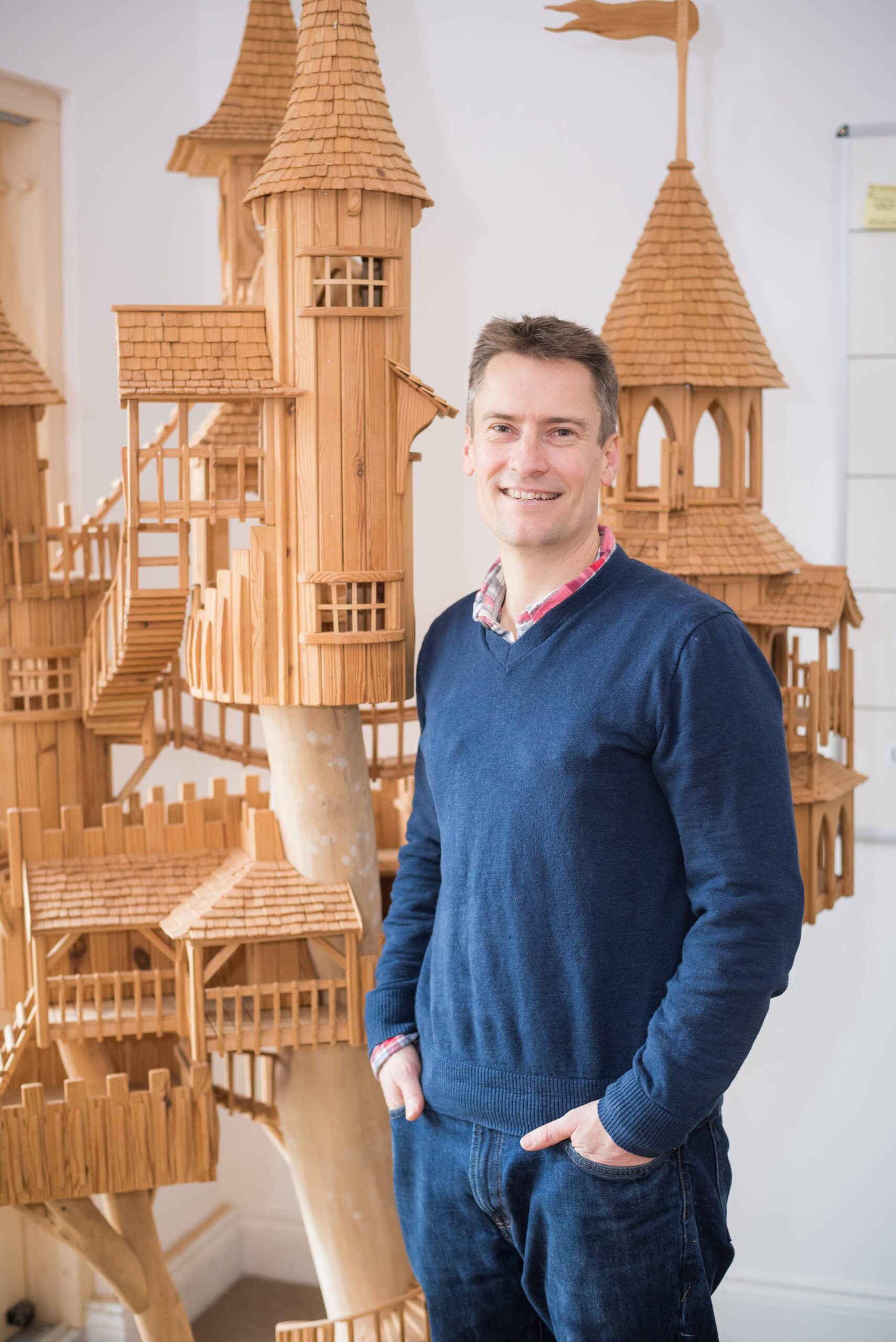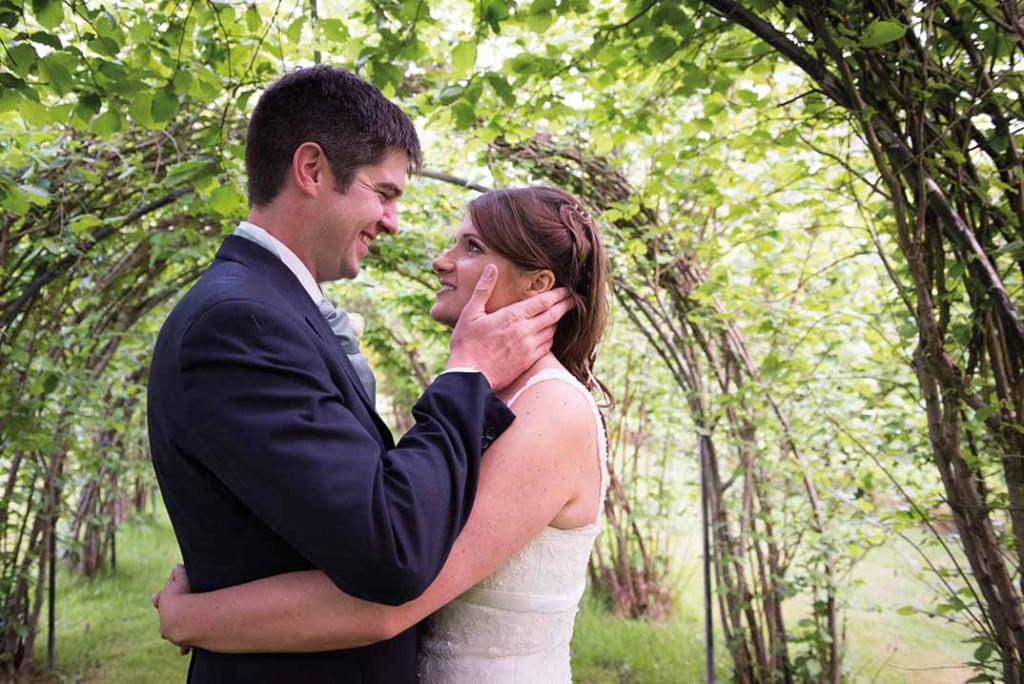WHAT does someone with an adventurous spirit, a large garden and a fair amount of disposable income buy themselves when there is nothing left to buy?
Perhaps the answer is a luxury tree house? At least that is what the owners of Blue Forest will be hoping.
Founded 14 years ago, by brothers Andy and Simon Payne, the Wadhurst-based luxury tree house company takes tree-top living to a level that surpasses anything dreamt up by the Swiss Family Robinson.
“When I tell people at social events such as weddings that I build tree houses I often get people look at me in a way which says ‘oh poor you’ because they think I’m talking of just nailing a few pallets to branches,” said Simon, adding their attitude rapidly changes when he shows them pictures of their projects.
The brothers took much of their design inspiration from their early childhood days living in Kenya and the way the safari lodges were built accommodate their surroundings, rather than simply clearing the land a placing a building on it.
Since its foundation Blue Forest has grown from a two man band to a team of 15 people, including 3D graphic designers, architects and engineers.
The growth of the business goes hand in hand with the increasingly ambitious projects that the company called upon to deliver, with commercial projects becoming more and more integral to the company.
“We have just completed a project at Alton Towers and are currently consulting Merlin – the theme park’s parent company – about other things they want doing,” explained Simon.
But the core of the company is still catering for the tastes of those who are lucky enough to afford a tree house of their own.
“Most of our non-commercial clients are fairly high net worth individuals because, to be honest, these things are luxuries for most rather than necessities.
“But we do get a few people who see it as an investment and so borrow money to build one. These are often for people setting up a B&B. We even people working from home and wantone for office space. They calculate it would cost just as much for a house extension and think it would be nicer to have a treehouse,” said Simon.
“We often pitch ideas and then
worry about delivery afterwards”
A ‘basic model’ would set the buyer back around £35,000, including VAT, but there is no upper limit.
“We have had clients spend hundreds of thousands of pounds and these people have a real purpose in mind. Sometimes we are fortunate enough to have someone say there is no budget because then we can have real fun.”
By ‘real fun’ he means add features such as waterslides, hidden rooms accessible through rotating bookshelves, trampolines and hot tubs.
However, he admits sometimes they suggest things before they think about how to deliver them.
“We often pitch ideas and then worry about delivery afterwards. For example, we suggested a waterslide for one client and found the solution to actually giving him one was to use the inflatable chutes found on luxury yachts and pump water onto it.”
Part of what makes their business unique is the fact it is so customisable and ever-changing with each job being totally different, although Simon states this is also an ‘Achilles heal’ of the business model.
“We can’t do an-off the shelf product,” he adds, explaining creating a luxury tree house is a complex process that includes the application for planning permission, the sourcing of materials and the detailed design. Sometimes outside contractors from across Europe are bought in if the project is sufficiently large or there are some particularly niche requirements.
Originally Blue Forest had focussed on the mid-market for tree houses but, perhaps ironical, it was the recession which led them to focus on the elite market.
“When the recession hit, we found those who were had good incomes but are not ‘high net worth’, such as doctors and lawyers, stopped wanting tree houses.
“When it came to prioritising continuing to send their children to private school or have a tree house its not suppressing what they opted for.
“So we ended up pitching to those who were not too affected and would have disposable income regardless. Now we have grown we couldn’t compete at the lower end of the market anyway because of our overheads.”
Although 90 per cent of their work is still within the UK, some of the projects have taken the team as far afield as the US, Borneo and Malawi.
One recent enquiry has come from the United Arab Emirates, but it is too early to see if anything will come of it as there is an extremely large gap between those who express an interest and those who follow through.
“People email from all over the world but probably only about one per cent of them ever come to something. I have become pretty good at recognising quickly who are the dreamers and who are committed.”









